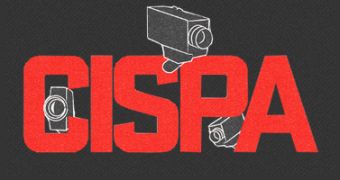For the second time, the Cyber Intelligence Sharing and Protection Act (CISPA) has passed the US House of Representatives with 288 votes in favor. The controversial bill will be presented before Senate.
The bill, which focuses on cyberattack information sharing between the government and the private sector, is opposed by many because of its privacy implications.
“Throughout the debate on CISPA, I have sought to ensure that the privacy of Americans was protected, a goal that can easily be accomplished while still allowing for increased sharing of cybersecurity information,” said Rep. Adam Schiff (D-Burbank), cited by LA Times.
“And while progress has been made, the bill still lacks any requirement that private companies remove the personal information of Americans before sharing cybersecurity information with the government or other companies.”
Even US President Barack Obama has threatened to veto the bill if privacy and civil liberties concerns are not addressed.
Rep. Mike Rogers, one of CISPA’s most vocal supporters, faced a Twitter storm a few days ago after stating that those who oppose the bill are 14-year-olds living in their basements.
Earlier this week, an amendment – which would have allowed companies such as Google to promise their customers that their information would not be voluntarily shared – was voted down by Republicans.
In a post published at the beginning of March, the Electronic Frontier Foundation (EFF) highlighted the fact that the bill’s vague language may cause many problems.
“As it stands, CISPA is dangerously vague, and should not allow for any expansion of government powers through a series of poorly worded definitions. If the drafters intend to give new powers to the government’s already extensive capacity to examine your private information, they should propose clear and specific language so we can have a real debate,” the EFF noted.
EFF urges Internet users to join their action against the bill.

 14 DAY TRIAL //
14 DAY TRIAL //